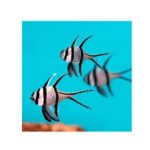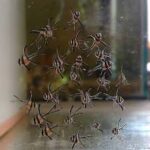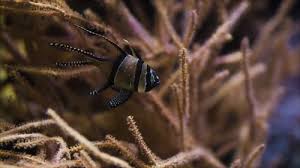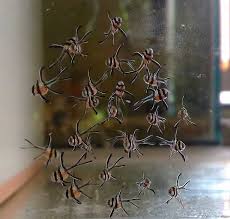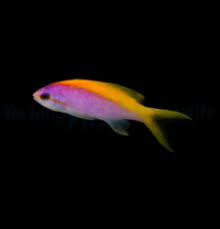
In Chinese mythology, dragons are often depicted as powerful, mystical creatures, deeply intertwined with the forces of nature and the supernatural. They symbolize strength, prosperity, and divine protection, but they also have a significant connection to themes of immortality and the mystical. One of the most fascinating legends that intertwines dragons with immortality is the tale of the Immortal Peach Gardens. These mythological gardens, often said to be located in paradise or hidden realms, were believed to hold the key to eternal life, and the dragon was often seen as both a guardian and an active participant in the maintenance of their power.
This article delves into the legendary connection between dragons and the Immortal Peach Gardens, exploring the symbolism of these magnificent creatures, their role in myths, and how they relate to the quest for eternal life and the spiritual landscape of ancient China. We will explore the origin of these myths, the significance of the Immortal Peach Trees, the association of dragons with immortality, and how these elements were used in storytelling to convey deeper truths about life, death, and the divine.
The Immortal Peach Gardens: A Symbol of Eternal Life
In Chinese mythology, the Immortal Peach Gardens are typically associated with the legendary Queen Mother of the West, known as Xi Wangmu (西王母). She is often depicted as the guardian of the peaches that grow in her heavenly gardens, which are said to bloom once every 3,000 years. These peaches are not just ordinary fruits but are believed to grant immortality to those who consume them.
The Queen Mother of the West herself is an ancient figure, said to have been worshipped as early as the Zhou Dynasty (1046–256 BCE), though her prominence rose during the Han Dynasty (206 BCE – 220 CE). In most versions of the myth, Xi Wangmu resides in the Kunlun Mountains, which are said to be the center of the world and the location of these heavenly gardens. The peaches that grow there are regarded as highly sacred and magical, each capable of granting eternal life to the person who eats them.
The Immortal Peach Gardens symbolize the elixir of life, offering the promise of transcending the limits of mortality. In Chinese culture, the pursuit of immortality is a recurring theme, deeply intertwined with Taoist philosophy and the search for harmony with nature. The gardens are often portrayed as lush, vibrant, and otherworldly places, secluded from the mortal realm. Their association with immortality elevates the peaches from mere fruits to sacred objects of desire and power, sought by both immortals and mortals alike.
Dragons as Guardians and Symbols of the Immortal Peach Gardens
While the Queen Mother of the West is the central figure in the myth of the Immortal Peach Gardens, dragons are also frequently linked to these legendary gardens. Dragons in Chinese mythology are not only symbols of power and fortune but also creatures capable of controlling natural elements such as water, weather, and the very forces of life and death.
In some versions of the myth, dragons serve as protectors of the Immortal Peach Gardens, guarding the sacred peaches and preventing mortals from accessing them. Their role is to ensure that only those deemed worthy by the divine—such as the immortals or the gods—are allowed to partake in the peaches’ power. Dragons are often portrayed as the gatekeepers of these sacred realms, serving as intermediaries between the mortal and immortal worlds.
Dragons and Immortality: A Powerful Connection
The dragon’s connection to immortality goes beyond its role as a guardian of the Peach Gardens. In Chinese tradition, dragons are often associated with the concept of yang, the force of vitality, strength, and life. This force is linked to immortality because dragons embody the very essence of life itself. They represent the cosmic energy that sustains and nourishes the world, and thus their association with immortality is natural.
Dragons are also believed to have the ability to shape-shift and transform, much like the cycles of life, death, and rebirth. Their power over nature allows them to transcend the limitations of the physical world, making them ideal agents for conveying the theme of immortality. In some tales, dragons are said to be born from the cosmic forces of creation and are therefore eternal beings that exist outside the normal flow of time.
The Peach Gardens, as a metaphor for immortality, represent the unending cycle of life, and the dragon, as a symbol of this eternal energy, is the perfect guardian of such a realm. The dragon’s ability to fly between heaven and earth, its command over the elements, and its link to the cosmic forces of life all contribute to its status as a creature capable of preserving the immortality of the sacred peaches and their guardians.
The Peach Trees and Their Sacred Role in Chinese Mythology
Peach trees, especially those that bear the Immortal Peaches, are incredibly significant in Chinese culture. They symbolize longevity, vitality, and eternal life, aligning them with Taoist beliefs that emphasize harmony between the physical and spiritual realms. The peaches in these myths are said to be so potent that even a small bite can grant one hundreds or thousands of years of life. In some versions of the myth, the peaches must be consumed in their entirety to achieve full immortality, reinforcing the idea that divine gifts, while accessible, must be treated with reverence.
The idea of the Immortal Peach Trees is also linked to the concept of nature as a sacred force. These trees are not merely physical entities but hold spiritual significance as life-giving beings. By placing the dragons as guardians of these trees, mythology imbues them with a deeper meaning, making the peach gardens a microcosm of the balance between nature, life, and the divine. This connection highlights the Chinese belief in the importance of protecting natural resources and respecting the divine forces that govern life.
Dragons and the Queen Mother of the West: A Divine Alliance
The Queen Mother of the West is a central figure in the myth of the Immortal Peach Gardens, and her connection to dragons further deepens the spiritual and symbolic meaning of these legends. Xi Wangmu is often depicted as a powerful and mysterious deity who rules over the Kunlun Mountains, the abode of the Immortal Peach Gardens. In many myths, she is described as the supreme goddess of life and death, controlling the flow of time and maintaining the balance between life’s beginning and its end.
While Xi Wangmu is the keeper of the Immortal Peaches, the dragon is her trusted ally. The two are often depicted as working together to ensure the sacredness of the peaches and to guard the garden against any who would seek to abuse its power. The dragon is not only a guardian but also a symbol of the cosmic forces that align with Xi Wangmu’s realm. Together, the dragon and the Queen Mother of the West represent the divine connection between life, death, and immortality. Their partnership symbolizes the unification of heaven and earth, the spiritual and the physical.
In many depictions, the Queen Mother of the West and her dragon guardians embody the ideal balance of power, wisdom, and divine authority. This relationship reinforces the concept that immortality, though a divine gift, must be protected and respected by those who seek it.
Dragons and Immortal Peach Gardens in Art and Literature
The myth of the Immortal Peach Gardens and the role of dragons in this narrative have been immortalized in Chinese art and literature for centuries. Paintings, sculptures, and other artistic representations frequently depict the Queen Mother of the West, her Peach Gardens, and the dragons that guard them. These depictions are often filled with vibrant colors and intricate details, symbolizing the richness of life and the celestial nature of these mythical beings.
In Chinese classical literature, such as the Classic of Mountains and Seas (山海经), dragons play a central role in guarding sacred places and preserving the cosmic order. These texts often describe the relationship between the dragons and the divine beings, such as the Queen Mother of the West, that govern these mystical gardens. Through these stories, the imagery of dragons and the Immortal Peach Gardens comes to symbolize not only immortality but also the interconnectedness of nature, the divine, and the human pursuit of spiritual transcendence.
Conclusion: The Enduring Legacy of Dragons and the Immortal Peach Gardens
The legend of the Immortal Peach Gardens and the dragons that guard them is one of the most enchanting and profound myths in Chinese folklore. It ties together themes of immortality, the divine, and the forces of nature in a way that reflects the deep spiritual connection between humanity and the natural world. The dragons, as symbols of power, strength, and vitality, serve as guardians of these sacred gardens, ensuring that the immortal peaches remain safe and that only the worthy are granted the gift of eternal life.
The myth also speaks to the broader Chinese cultural values of balance, respect for nature, and the pursuit of spiritual enlightenment. Through the symbolism of the Peach Gardens and their dragon guardians, we are reminded of the delicate balance between life and death, and the importance of understanding and respecting the natural forces that govern the world. In this way, the legend of the dragons and the Immortal Peach Gardens continues to inspire awe and wonder, offering timeless lessons on immortality, the divine, and our place in the cosmos.

